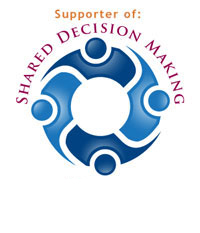Sabrina Kurtz-Rossi of the Clear Language Group and Rob Logan co-author IOM Health Literacy Roundtable Discussion Paper on Why We Need a Health Literacy Association http://www.iom.edu/global/perspectives/2015/health-literacy-association.aspx
Audrey Riffenburgh and Sabrina Kurtz-Rossi are co-authors of the new resource, Building Health Literate Organizations: A Guidebook to Achieving Organizational Change. Health literacy is fundamental to improving patient safety, quality, and equity. Healthcare organizations need to make system-wide, sustainable changes to help patients learn and use health literacy skills. The book provides a flexible framework for organizations who want to become health literate.
Office of Minority Health and Health Disparities, Maryland Department of Health and the Herschel S. Horowitz Center for Health Literacy, University of Maryland College Park recently published a health literacy and cultural competency teaching resources for educators of health professionals. This is an important document because it supports a new conceptual framework that looks to integrate cultural competency and health literacy training of health professionals. CLG member Sabrina Kurtz-Rossi is using this dual pedagogy in a new course she is teaching in spring 2014 at Johns Hopkins University.
The Institute of Medicine (IOM) Roundtable on Health Literacy published a discussion paper on the Ten Attributes of Health Literate Health Care Organizations. This paper is significant because it shifts the thinking about health literacy from a deficit mode to a model that looks at reducing the complexity of the health care system. CLG members Sabrina Kurtz-Rossi and Audrey Riffenburgh are co-authoring a supporting document entitled Building Health Literate Health Care Organizations: A Guide to Organizational Change (in print).
Environmental Research has released online the in-press article titled “Can fish consumption advisories do better? Providing benefit and risk information to increase knowledge” co-authored by CLGer Sue Stableford. Sue was the primary developer of the booklet cited in the article, titled “Fish: 2 Meals a Day for Good Health.” The booklet urges adults, including pregnant women, to eat more fish and limit or avoid those high in mercury. Survey research documented a positive booklet impact on the intended audience.
Listen to a podcast of 4 CLG members discussing the role of health literacy and plain language as the Affordable Care Act is implemented. They address the impact of enrolling millions of Americans into insurance and healthcare systems, many for the first time. And they suggest how all of us together – payers, providers, and consumers – can and must address the communication needs of diverse patients and communities.

CLG helps deliver shared decision making tools for print, web, and media.
Lorena Sprager of CLG is a speaker on this one hour webinar. It is part of the Maternal and Child Public Health Webinar Series and aired January 17, 2013. The intended audience is state public health personnel working with mothers, women, children and youth, and families in Region 10, US Department of Health Services. www.nwcphp.org/training/opportunities/webinars/migrant-farmworkers/
The extensive use of well-organized case studies, along with insightful commentary, makes this an excellent resource for people providing direct care for patients. books.google.com/books/about/Caring_for_Patients_from_Different_Cultu.html?id=nVgeOxUL3cYC
The anti-immigrant climate creates a challenge for health centers, social service programs and education programs. Some immigrants are not going in for care or services. Others come in once a problem is extreme. There are many ways to help. This booklet gives you ideas and resources for doing outreach in an anti-immigrant climate. It is co-authored by Lorena Sprager of CLG. http://www.outreach-partners.org/other/anti-immigrant-climate